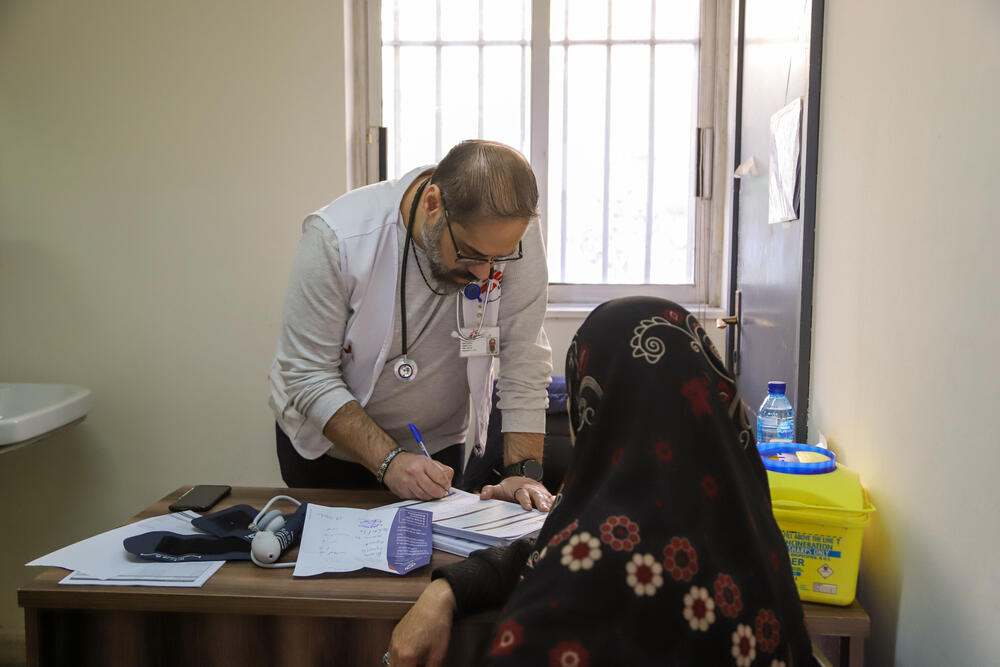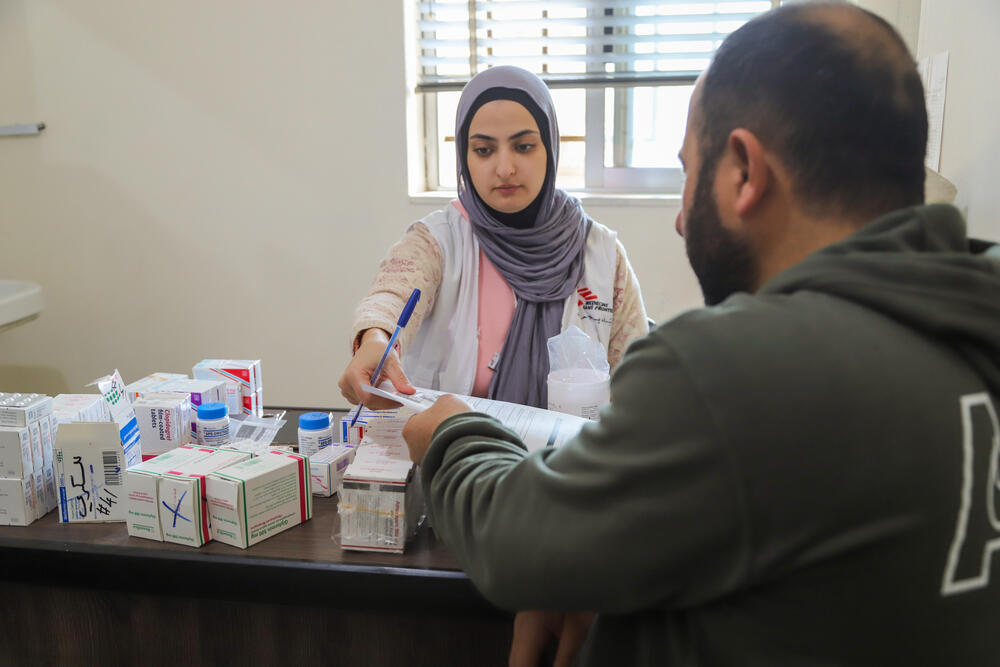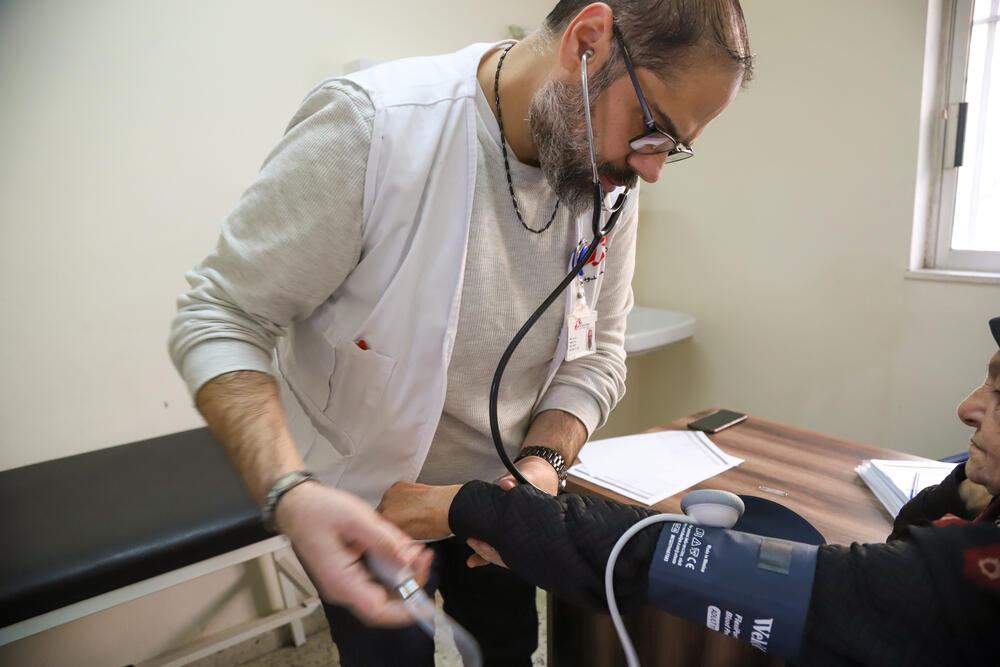Lebanon: MSF provides healthcare to people displaced by military escalation along southern border
9 January 2023
Escalating military activity along Lebanon’s southern border has forced thousands of people to flee border towns and seek refuge further north or in major cities. Israeli forces and Hezbollah have exchanged fire across the Israel-Lebanon border since the start of the Israel-Gaza war on 7 October of 2023, but in recent weeks the violence has escalated, with Israeli forces launching heavy bombardments of Lebanon’s southern border region. Many of the displaced people are in need of essential relief items, while others have run out of their regular medications. In response, international medical organisation Médecins Sans Frontières/Doctors Without Borders (MSF) has deployed a mobile team to help provide the displaced people with healthcare.
"People need mattresses, clothes and medications” says Abbas Chite, from Kfarkila in south Lebanon. “We left everything behind when the bombardment became heavy. We can’t even go back to get our medical prescriptions or clothes."
The armed escalation is compounding an ongoing humanitarian crisis in Lebanon and intensifying people’s existing needs. The country is in the fourth year of a severe economic crisis that has pushed two out of three citizens into poverty, heavily impacting their ability to afford basic goods and services, including food and healthcare.
Abbas used to work in the construction industry, but now there is no work available, leaving him unable to earn a living and support his family. "I work in construction, but everything has stopped since the beginning of the [economic] crisis," he says.
MSF’s mobile medical team is supporting two health centres in Nabatieh district, south Lebanon, by caring for patients with chronic diseases and providing psychological first aid. Lebanon’s healthcare system, like other sectors in the country, was already overburdened by the economic crisis. Local health centres, that are already at capacity, could face increasing pressure if they contend with the growing medical needs of displaced people.
"When people are displaced, they are forced to leave their homes abruptly, interrupting their treatment, especially for those with chronic diseases,” says MSF mobile team member Dr Aida Hassouni. “With uncertainty about when they can return, we're here to bridge that gap by offering chronic disease care. This ensures that individuals can continue their treatment until they can resume their regular lives."
Since October, MSF teams have pre-positioned ten tonnes of medical supplies in various hospitals and medical facilities in Lebanon. The teams have also provided training to hospital staff across Lebanon in emergency trauma care and the management of mass casualty events, in accordance with the Ministry of Public Health’s emergency preparedness and response plan and in collaboration with other health partners. More than one hundred medical personnel were trained in nine hospitals over the course of three weeks.


